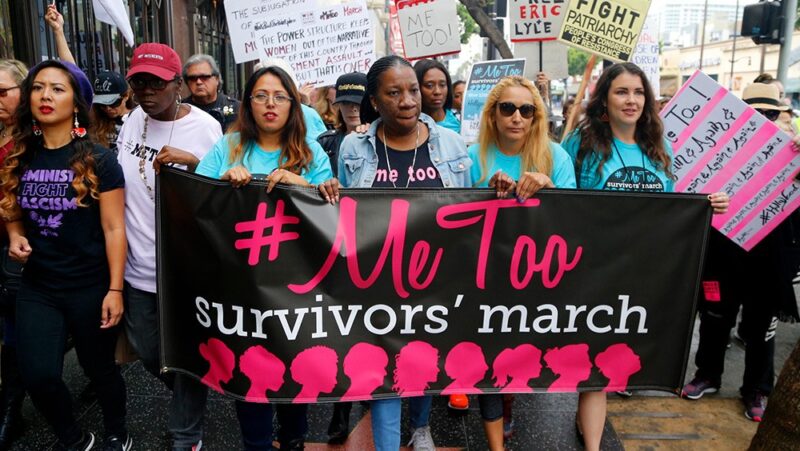Perspective: Free Speech and Press Need Freedom of Information

“The right to speak and the right to print, without the right to know, are pretty empty.”
These are the words of Harold Cross, author of “The People’s Right to Know,” a book largely regarded as inspiration for the federal Freedom of Information Act (FOIA), which Congress passed in 1967.
The FOIA – and its state-level counterparts – guarantees us the right to request records from any government agency, allowing the public to oversee the activities of government. It not only enhances our exercise of the rights to free speech and freedom of the press (as well as the other three freedoms – religion, assembly and petition) but also directly benefits society by potentially exposing government waste, abuse and corruption.
That’s why the News Leaders Association, formerly the American Society of News Editors, created Sunshine Week in 2005. (Full disclosure: I was general counsel to that organization for more than 20 years.)
It coincides with the March 16th birthday of James Madison, who, along with drafting the First Amendment and the other nine amendments of the Bill of Rights, is considered the “father of freedom of information.” Sunshine Week is a celebration of all things open government.
In addition to media stories and commentaries about the importance of open government, there are often conferences and other events convened by organizations around the country to discuss these issues. There’s also a lot of fun stuff too: trivia nights, happy hours and other social events. The Madison, Wis., chapter of the Society of Professional Journalists celebrated Sunshine Week 2015 by partnering with a local brewery on a “Sunshine Wheat” beer. Even federal, state and local officials get involved, often with symbolic gestures, but sometimes beyond mere lip service, with hearings, resolutions, and legislation designed to make government more open and accessible to the public.
The Freedom Forum has previously hosted a National Freedom of Information Day Conference and continues to celebrate Sunshine Week. You should too.
That’s because while many view the FOIA as a federal law for journalists to use in their role as watchdogs of government activity, access to records provides an ongoing benefit to all of us.
Reporters from the New York Times used FOIA to track the expenses and meetings of Scott Pruitt, the former head of the Environmental Protection Agency, who resigned in 2018 amid allegations of corruption. A blog associated with the Times also used FOIA to learn that the Department of Agriculture received 64 complaints from 2007 to 2009 about foreign objects such as glass, a rubber glove and an insect found in hot dogs sold to the public. (I can hear some of you saying, “Actually, I’d rather not know that.”)
At the local level, the Associated Press used FOIA in the wake of Hurricane Katrina to determine that 122 other levees built by the Army Corp of Engineers around the country contained deficiencies. That FOIA request brought the issue to the attention of the residents of those 122 communities, allowing them to take steps to protect themselves and their homes from flood risk and resulting in repairs where necessary.
But it’s not just reporters who use FOIA. Ordinary people – even those who are skeptical of the role of the media in overseeing government – use the law to great effect. In 2019, students at Back of the Yards High School in Chicago used public records to learn that the two white police officers at their mostly minority school each had substantial misconduct complaints against them, including allegations of use of force, false arrest and verbal abuse, often against people of color. The students then used this information to ask for the removal police officers from their public schools.
Other Gen Zers have used their digital skills to access and analyze public records, especially large datasets, through technology.
Jack Sweeney, a freshman at the University of Central Florida, has used publicly available flight information to track SpaceX founder Elon Musk’s private jet – which he then reported via Twitter @ElonJet. As Russian forces invaded Ukraine, Sweeney launched @RUOligarchJets, which tracks the movement of Russian oligarchs.
On a larger scale, FOIA requesters should applaud the recent creation of Gumshoe by graduate students at NYU’s Center for Data Science. Gumshoe is an artificial intelligence tool that sorts through large swaths of information. This is more necessary than ever given the explosion of information that is created by the government every year and the hundreds, if not thousands, of pages of text that one might receive via a public records request. The Gumshoe team has already received funding including a $200,000 grant from the Patrick J. McGovern Foundation to build out the product for widespread distribution.
You don’t have to be a journalist or computer genius to use public records laws – and certainly not to benefit from their use. That’s why we all should celebrate Sunshine Week and public records all year round.
Kevin Goldberg is First Amendment specialist for the Freedom Forum. He can be reached at kgoldberg@freedomforum.org.
How to Write a Letter to the Editor: Examples, Tips and More
13 Women’s Rights Activists Who Embodied the Power of the First Amendment
Related Content

